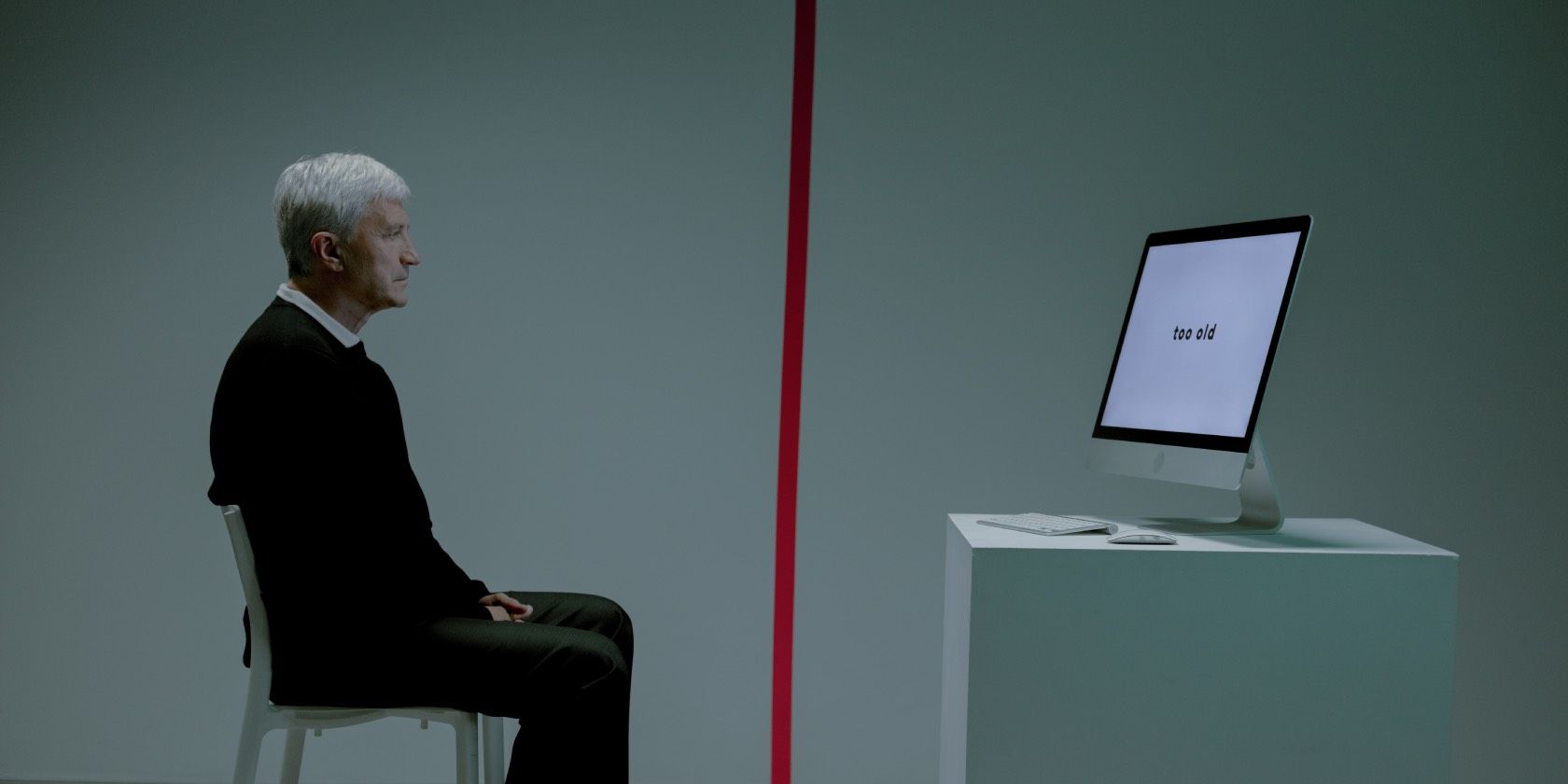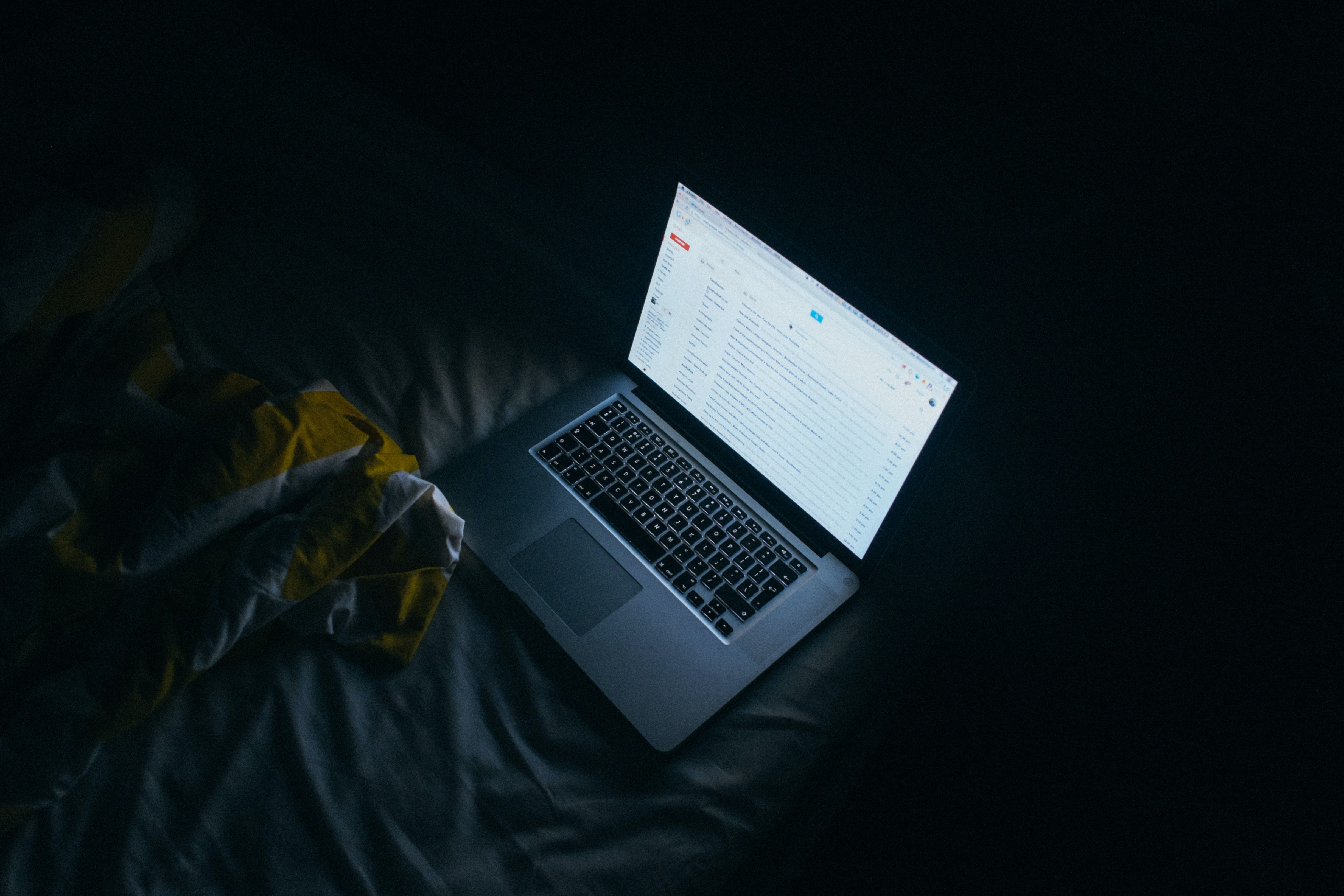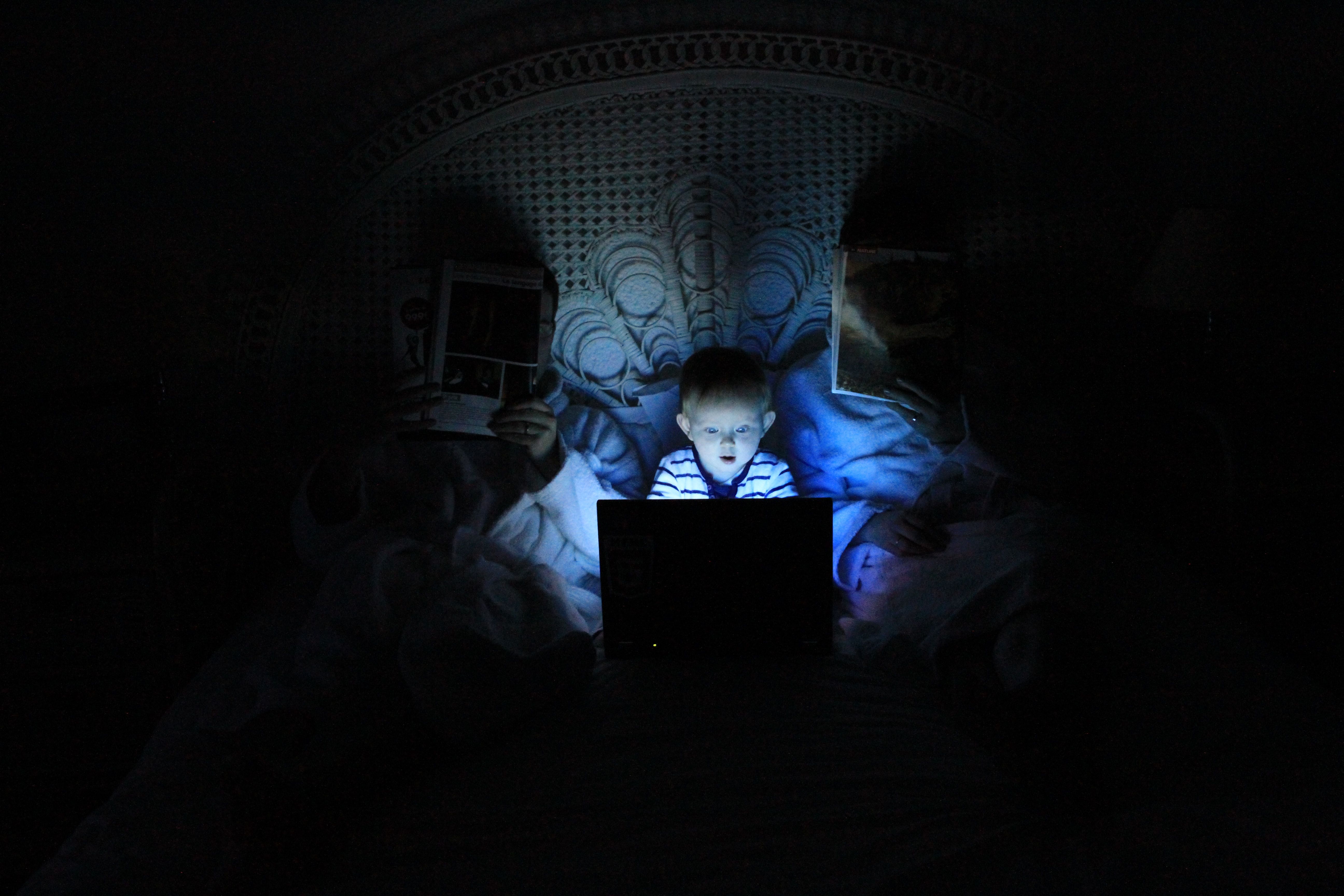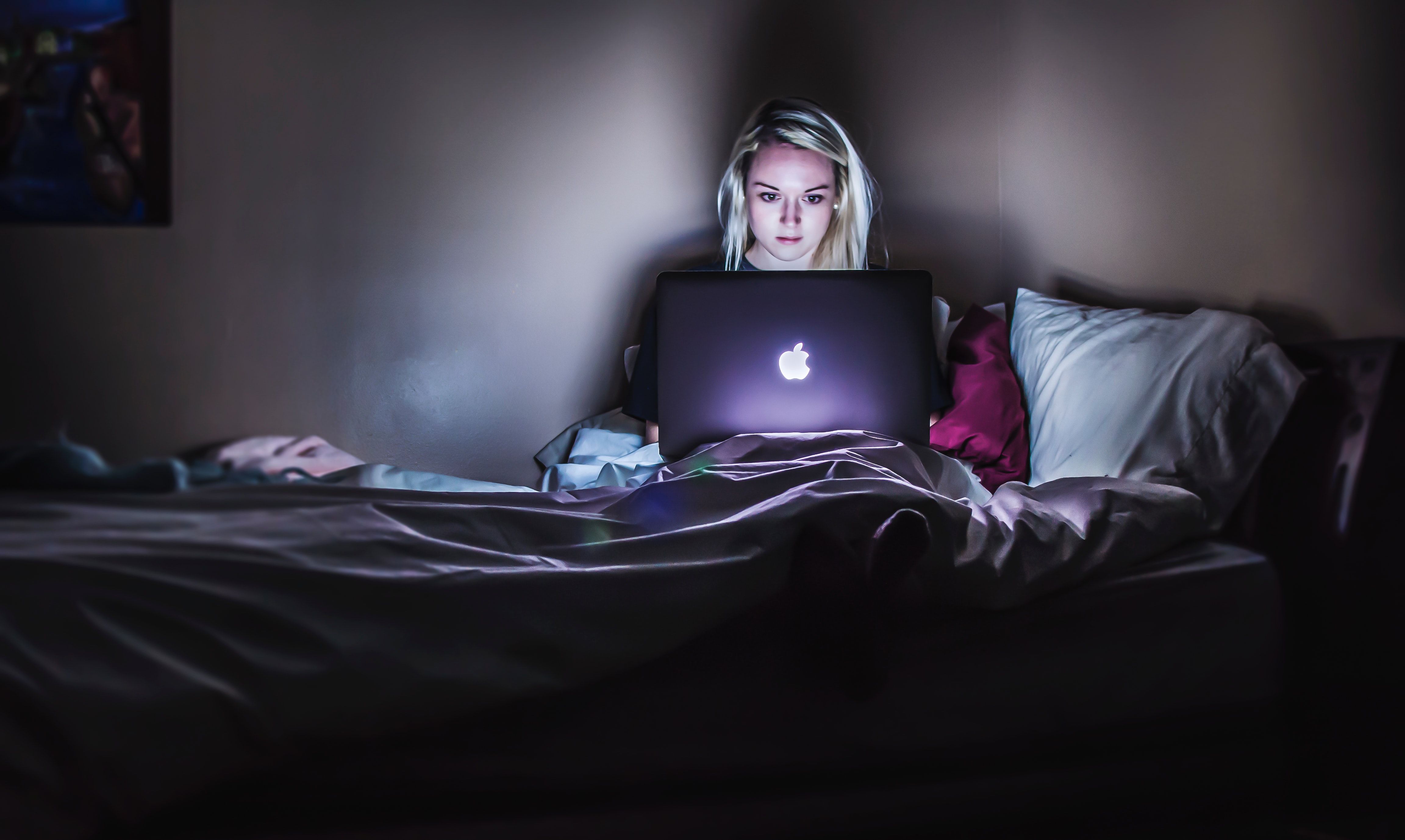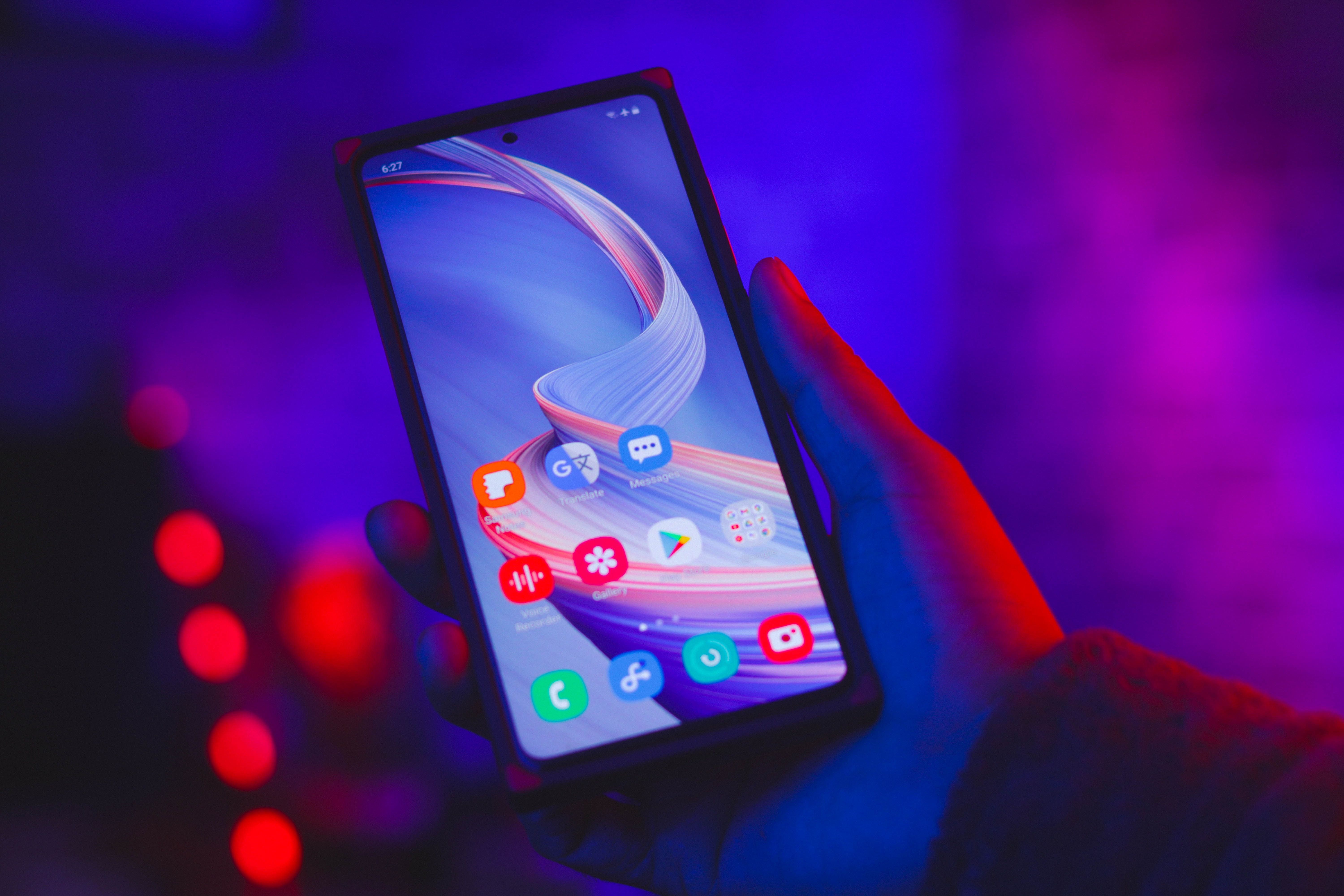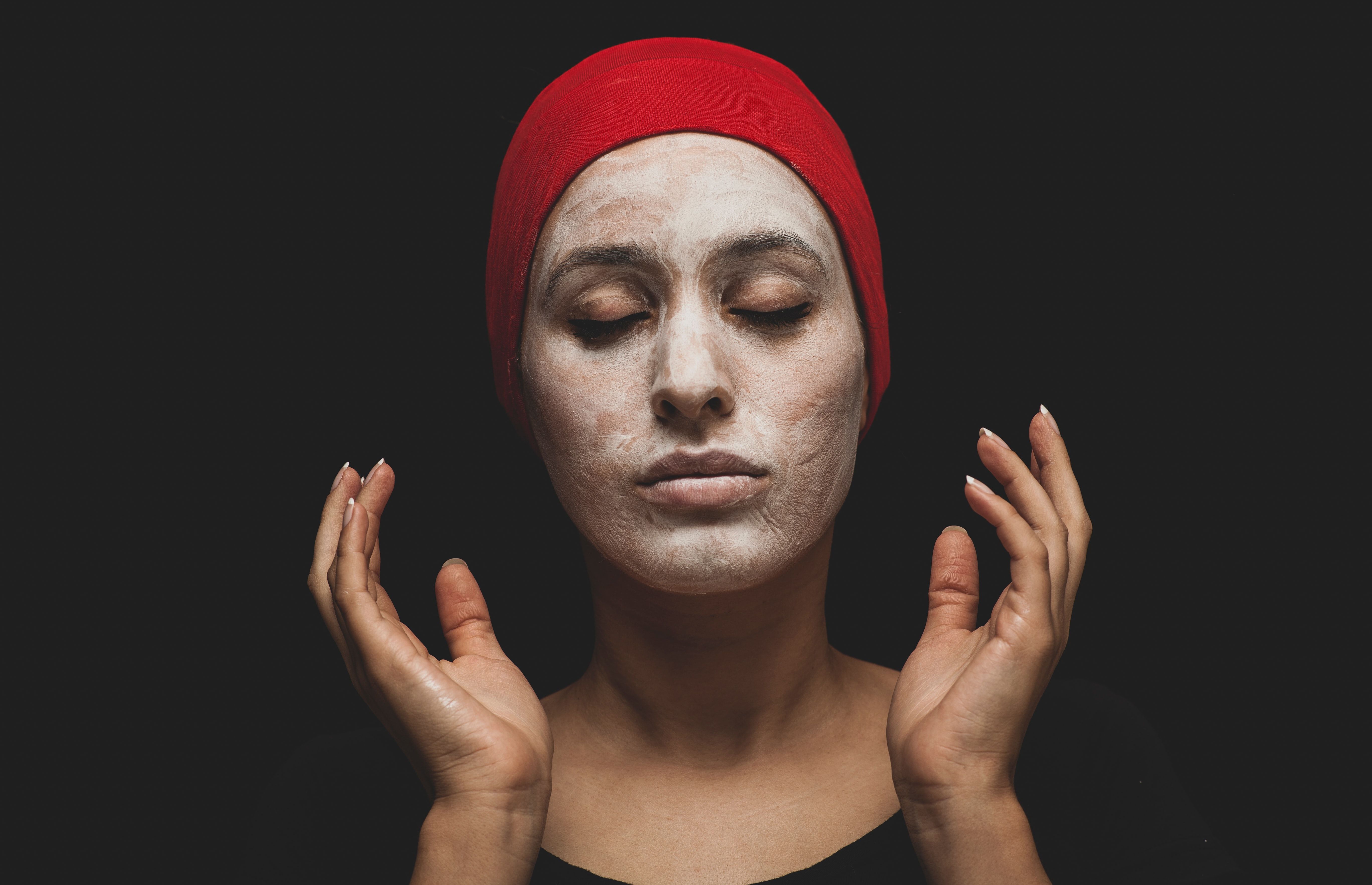Responsible for most of the visible signs of aging, skincare enthusiasts everywhere avoid sun damage as much as possible. But, did you know that blue light emitted from screens can be just as bad for your skin?
From collagen breakdown and poor sleep to insulin resistance, blue light from our screens can greatly affect our overall health, especially our skin. Keep reading if you want to know how blue affects our health and how you can reduce your exposure.
What Is Blue Light, and How Does It Affect Our Health?
Blue light is a particular range of blue to violet light, which makes the sky blue. Previously, humans only experienced blue light during the day with the sun.
However, with the development of various technology, most of us experience blue light exposure even at night. These days, artificial blue light, which comes from TVs, smartphones, and digital screens of all kinds, is becoming more prevalent in our homes.
Unfortunately, aside from impacting our productivity, blue light has other unintended consequences for our health. In fact, new studies have begun to show blue light's role in accelerating aging.
So, while most sunscreen addicts can attest to the importance of protecting yourself from ultraviolet rays from the sun, many people don't know that the blue light from screens can be just as bad for your skin. Here's why.
Why Is Blue Light Bad for Our Skin?
Usually, blue light emits 90 percent of high-energy radiation (HEV), a type of high-energy light that can penetrate from 380 to 500 nanometers.
Compared to ultraviolet rays, which range from 100 to 400 nanometers, HEV can actually penetrate deeper and reach into the hypodermis of the skin. Because of this, blue light can break down collagen and elastin in the skin, which are the fibers that give our skin its elasticity.
According to a 2017 study by Nippon Medical School, blue light can induce oxidative stress in live skin. In the study, the results suggested that blue light exposure contributes to skin aging similar to UVA.
In 2020, the Journal of Cosmetic Dermatology also published a study citing that while low-energy and low exposure times to high-energy blue light can help prevent some skin diseases, its long-term effects tell a different story.
According to the study, longer exposure to high-energy blue light can increase the amount of DNA damage, cell and tissue death, injury, eye damage, skin barrier damage, and the rate of photoaging.
What Are The Effects of Poor Eyesight, Lack of Sleep, and Insulin Resistance on Aging?
Unfortunately, blue light doesn't just damage our skin through damage through free radicals. Blue light also impacts aging through its effects on our eyesight, sleep quality, and insulin resistance. Here's how.
Poor Eyesight Causes Wrinkles
Linked to macular degeneration and cancer by emitting high-energy visible (HEV) rays, blue light penetrates your eye, which can cause fractured chromosomes in your cells. Aside from impaired vision as you age, the resulting damage caused by these rays may lead to wrinkles and crow's feet on your face.
Lack of Sleep Leads to Inflammation
Blue light lowers our melatonin production at night, making it difficult for us to sleep in general. Lack of sleep is bad for our skin because it causes inflammation, which makes us look puffy, bloated, and generally older than we actually are.
In addition, inflammation also slows down collagen production in the dermis, which causes more lines and wrinkles on the face to appear.
Increased Blood Sugar Damages Collagen
A 2016 study from Northwestern University Feinberg School of Medicine found that exposure to bright blue light during meals increases insulin resistance. Linked to high blood sugar levels, insulin resistance damages the collagen in the dermis, accelerating the appearance of wrinkles.
What Can We Do About Blue Light's Effect on Skin?
Unfortunately, blue light is everywhere and can't always be eliminated. However, we can make some small changes to reduce blue light's effects on our lives (and our skin).
Reduce Overall Blue Light Exposure
One of the simplest things we can do to reduce the effects of blue light on our skin is to reduce our overall exposure. As with many things, prevention is better than cure. While most of us cannot avoid touching a screen for a day, there are ways that we can use less of it.
To achieve this, here are some tips that you should try:
- Take blue-light breaks during the day
- Avoid using blue-light emitting devices before bed
- Opt for analog ways of doing some non-essential tasks
Install Blue Light Blocking Mechanisms on Your Devices
The next step to reducing blue light exposure is to get our devices to do half the work for us. Here are some ways how:
- Utilize night mode features on your devices
- Install apps designed to reduce blue light emitted by your device
- Stick to dark mode (if it's comfortable for you)
- Invest in blue light blocking filters
Add Blue Light Blocking to Your Skin Care Routine
Unfortunately, most sunscreen available in the market only offers protection from ultraviolet rays, such as Sun Protecting Factor (SPF). SPF only protects against UVB rays. On the other hand, broad-spectrum sunscreens protect only against UVA and UVB rays.
Some types of sunscreen with ingredients like micronized titanium dioxide and zinc oxide can reflect some types of HEV light. However, it's important to understand that it will only cover those near the UV spectrum, but not all of it.
In addition, you may want to invest in additional antioxidants to counter blue light's effect on your skin and to repair its effects. Some common antioxidants that you can use are vitamin C and Green Tea.
Don't Let Your Screens Age You (Literally)
Unfortunately, blue light is hard to eliminate from your life altogether. As many of us increasingly use our screens for work, leisure, and connecting with our loved ones, blue light appears to be a non-negotiable aspect of our future.
However, by creating good habits, routines, and settings that counteract the effects of blue light, we may have a better chance at lessening its effects on our overall health, including our skin.

